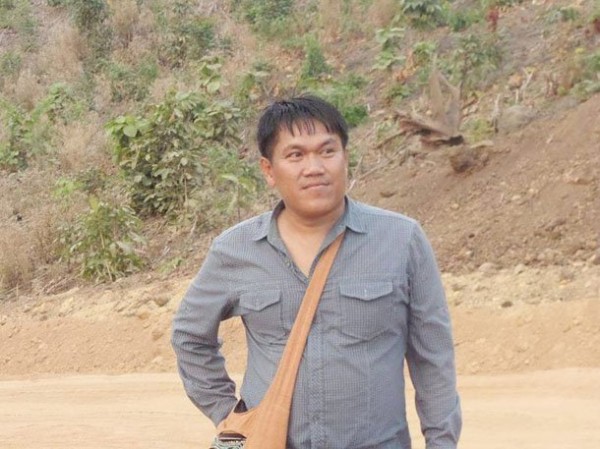Guwahati: Journalists’ Forum Assam (JFA) expressed deep shock at the killing of a Burmese journalist who used to report from the conflict zone in Mon province of eastern Burma (Myanmar) and urged the Burma government in NayPieTaw to probe into the situation that finally ended the life of Ko Aung Kyaw Naing.
By Nava J Thakuria
As the Burmese media reported, Mr Naing was assassinated in the backdrop of recent fighting between the Burmese Army and Karen ethnic rebels. Quoting the interim Myanmar Press Council, the local media also disclosed that Mr Naing was in military custody when he got killed. Mr Naing, also known as Ko Par Gyi, was detained by the Burmese Army on September 30 from Kyaikmayaw town of Mon province and he was killed on October 4, 2014 by the soldiers as the journalist allegedly ‘tried to run away seizing a weapon from the Army personnel on duty’.
The Burmese Army also accused Mr Naing of maintaining an unethical relationship with some ethnic armed militants, who have been waging a war against the Burma government seeking greater autonomy for decades.
The 50 years old freelance journalist, who contributed news and photographs for various Burmese publications namely Yangon Times, Eleven Media, The Voice etc was earlier associated with the Daw Aung San Suu Kyi led National League for Democracy.
For some years, Mr Naing was in exile in Thailand, from where he started working as a reporter from his base in Mae Sot on Thailand-Burma border. Mr Naing left behind his wife Daw Thandar, who is an activist of the Rangoon-based Peace and Women Network, a daughter and few other relatives. His body is yet to be delivered to the family by the government forces and it is suspected that he was silently buried by the solders.
Presently embracing democracy after decades of military dictatorship, Burma has a relatively lower number of incidents relating to the murder of media personnel. The last incident when a journalist (Kenji Nagai) was assassinated in Burma took place in 2007. Earlier U Hla Han and U Tha Win were killed by the Burmese forces in 1999.
The JFA, in a statement issued by its president Rupam Barua, demanded that the killers among those ‘men in uniform’ must be made accountable for the mysterious death of Mr Naing. Moreover the northeast India based media body urged the Burma President Thein Sein and opposition leader Nobel laureate Suu Kyi to help the bereaved family of Mr Naing to get back his mortal remains for the performing of last rites. Earlier, the JFA raised voices for five detained Burmese media workers, who were sent to the jail by the Pabedan township court in Rangoon. The court on October 16 sentenced Kyaw Zaw Hein, Ko Win Tin, Thura Aung, Yin Min Htun and Kyaw Min Khaing for two years of imprisonment each over the publication of a news story.
The five media persons, engaged with Bi Midday Sun newspaper of Burma, were arrested between July 7 to 16 last over an article narrating the probable inclusion of NLD leader Suu Kyi’s inclusion in an interim government. The JFA, while appealing Suu Kyi to clarify her stand on the issue and take personal interest to release the media persons at the earliest, asserted that ‘imprisonment of media persons in any country only shows the intolerance of the authority towards these sentinels of the society’ and it serves nothing.










